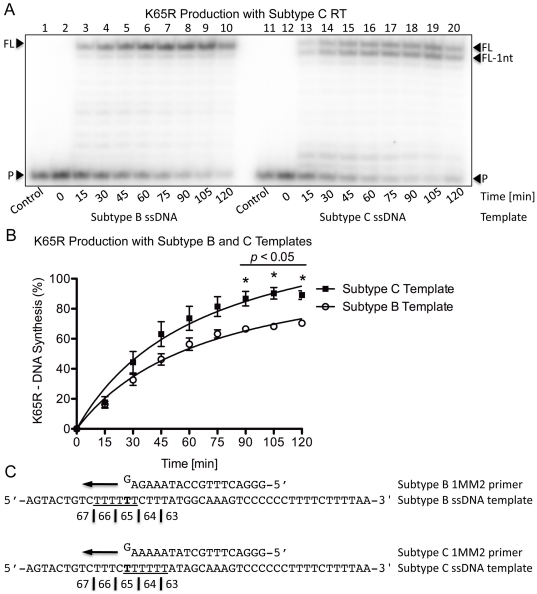Figure 3. K65R production rates with subtype C RT on subtype B and C templates with primers containing the mutagenic nt.
(A) Lanes 1 through 10 depict (+)dsDNA synthesis from the (−)ssDNA intermediate with subtype C RT on the subtype B template. The full-length product is observed as a single band at the FL position. Lanes 11 through 20 depict (+)dsDNA synthesis from the (−)ssDNA intermediate with subtype C RT on the subtype C template. The full-length product is observed as two distinct bands at the FL and FL-1nt positions, which is indicative of dislocation on the subtype C template. The results are similar to those obtained when subtype B RT was used on the same templates, thus highlighting the template-specific and enzyme-independent nature of the mechanism. (B) Graphical representation of the amount of transcript production with subtype C RT on both subtype B and C templates. The values indicated with an asterisk have a p-value <0.05 when the amount of K65R-production between both subtypes at the given time-point is compared. More transcripts containing the mutagenic nt are produced with the subtype C template than with the subtype B template. The same trend is present when subtype B RT was used on the same templates. (C) Depiction of the primer and template systems used. The primers contain a G base at their 3′-end that becomes mismatched on the T on the template strand thus yielding K65R-containing transcripts. The homopolymeric regions of both templates are underlined and the base responsible for the K65R mutation is indicated in bold.

